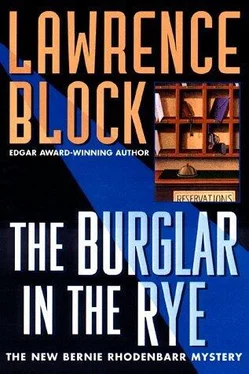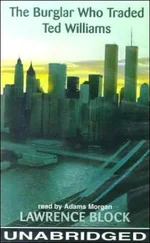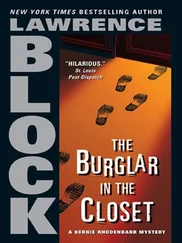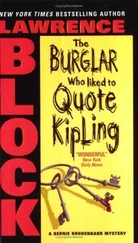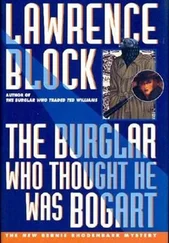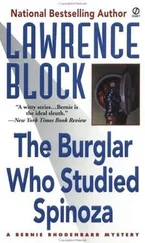She wrote back, careful not to gush, and his response came by return mail. He was living for the time being, he told her, in a three-room cottage outside Tesuque, which in fact was a small Indian pueblo. His residence was an adobe shack, thrown up in an unplanned fashion. But it was cozy, he wrote, and weren’t the best things often ones that just happened on their own, without preplanning? He’d written Nobody’s Baby without an outline, without any real clue, really, of what he was doing or where it was going, and it had turned out better than he could have planned.
His letter just ended, without the invitation that seemed to be implicit in it. She wrote back immediately, telling him his little house sounded perfectly charming. If she ever were to see it, she wrote, she was sure it would look familiar to her, as if she had lived there in a dimly recalled past life.
This time his reply was a little longer in coming. The letter itself, barely filling a single page, made no reference to anything either of them had previously written. Instead, he reported on a neighbor of his, who had two mixed-breed dogs. They were inseparable, he noted, though their temperaments were quite different, with one of them considerably more venturesome than the other. When she finished the letter, she wasn’t even sure if the dogs existed, or if they were characters in some fiction crafted for the occasion, a little parable with its point unclear. This letter, like the others, was typed on purple paper, and came in a purple envelope. And it included an airline ticket from New York to Albuquerque.
Four days later she was on a plane. When it landed he was at the gate. Neither had seen a photograph of the other, but they recognized each other the instant their eyes met. He was tall and slender, darkly handsome. They waited for her suitcase to show up on the baggage carousel. She pointed it out, and he carried it to his car.
On the drive to Tesuque, he told her he’d foreseen all of this when he read her essay. “I knew I wanted you to come to me,” he said, “and I knew you would.”
The shack, overlooking an arroyo, was just as she’d pictured it, and every bit as comfortable as he’d claimed. They lived in it for the next three years.
“What I don’t get,” I said, “is where he got the nerve to write you, and where you got the nerve to accept. Did he know you were only fourteen years old?”
“He knew I was in the ninth grade in school. If I was much older than fourteen, I’d have to be retarded.”
“Didn’t it occur to him that your parents would try to find you? And that he might wind up facing criminal charges?”
“I don’t think any of that ever entered his mind,” she said. “Gully’s not reckless, but I don’t think he spends much time considering the consequences of his actions. He may not really believe that actions necessarily have consequences. You read Nobody’s Baby. ”
“Yes.”
“So you know what he says about synchronicity. Anyway, he knew there wouldn’t be a problem. The same way he knew I would use the airline ticket.”
“And your parents?”
“They were a couple of old hippies,” she said. “My father was in Nepal at the time, staying stoned in Katmandu. My mom was back home in Greenwich, Connecticut, living on a trust fund and volunteering three days a week at that organization lobbying to legalize marijuana. NORML, though it and she were anything but.”
“So she didn’t object?”
“She drove me to the airport. Gully didn’t have a phone, but I called her a few days later from down the road and told her I would probably stay awhile. She thought that was cool.”
“And you were fourteen.”
“I used to say I had an old soul. I don’t know that I believe that, but I wasn’t your average fourteen-year-old, either. And I never felt as though I was in over my head. I was right where I belonged.”
She told me some of this at the bookstore, with Raffles purring on her lap and other customers staying away in droves, as if they somehow sensed they would be intruding. She told me more at the Cedar Tavern on University Place, where we went after I closed for the day, and where she asked the waiter if they had rye whiskey. He came back to report that they had Old Overholt, and she ordered a double shot with water back.
I said I’d have the same, but on the rocks with a splash of soda. I asked her if it was good that way. She said it was better straight up, and I changed the order-double rye, straight up, water back.
We had two rounds of drinks at the Cedar, then walked a couple of blocks to an Italian place I know that doesn’t look like much on the outside. The interior’s not too impressive either, but the food makes up for it. We ate osso buco and drank a bottle of Valpolicella, and the waiter brought us complimentary glasses of Strega with our espresso. The meal might have been better at a little trattoria in Florence, but I can’t imagine how.
She told me more while we ate and drank, and on the pavement outside the restaurant, in the wine-warmed cool of the evening, we gazed into one another’s eyes even as she and Fairborn had done in the Albuquerque airport, and she answered my question before I could ask it.
“Your place,” she said.
I held up a hand and a cab appeared. It was that kind of evening.
“So this is rye,” Carolyn said. “It tastes a little sweet to me, Bern. Compared to scotch.”
“I know.”
“But it’s not bad. The taste’s kind of interesting, once you get past the sweetness. There’s a real depth to the flavor, though you couldn’t put it in the same class with Glen Drumnadrochit.”
Glen Drumnadrochit is a rare single-malt scotch that we sampled on a weekend in the Berkshires, and it’s in a class by itself. You couldn’t compare anything to it, except perhaps whatever Bacchus was pouring for the heavy hitters on Mount Olympus.
“I thought rye was what you called a cheap blend,” she went on. “You know, one of those whiskeys with numbers.”
“Numbers?”
“Like Three Feathers, Bern. Or Four Roses.”
“Five Gold Rings,” I offered, and motioned to Maxine to bring us another round.
“Six Swans a-Swimming,” she said. “Seven Lords a-Leaping. When I was growing up, rye and ginger ale was what most of my aunts would have before family dinners, and that meant Three Feathers or Four Roses. Or Schenley’s, or something like that.”
“Blended whiskey,” I said. “Mostly grain neutral spirits. A lot of people call that rye, but properly speaking it’s not. Real rye is a straight whiskey, like scotch or bourbon, except that it’s made from a different grain. Scotch is made from barley and bourbon is made from corn.”
“And rye?”
“ Rye is made from rye.”
“Who would have guessed it? Thanks, Maxine.” She raised her glass. “Here’s to crime, Bern.”
We were, as you’ve likely guessed, at the Bum Rap. I’d called Carolyn to cancel our usual after-work drink the night before, and then she’d called in the morning to cancel our usual lunch, so we were making up for lost time.
“It seems to me,” she said judiciously, “that this stuff gets better as you go along. That’s the test of a good whiskey, wouldn’t you say?”
“I think that just proves there’s alcohol in it.”
“Well, maybe that’s the test of a good whiskey. Rye, huh? That’s a grain?”
“Ever hear of rye bread?”
“Of course I have. But this stuff doesn’t taste anything like those little seeds.”
“Those are caraway seeds, for flavoring. Rye is what they make the flour out of.”
“And what they don’t bake into bread they turn into whiskey?”
Читать дальше
